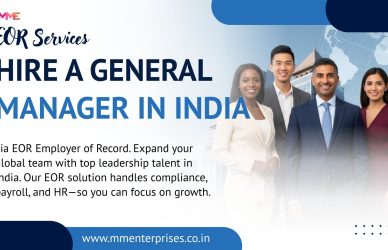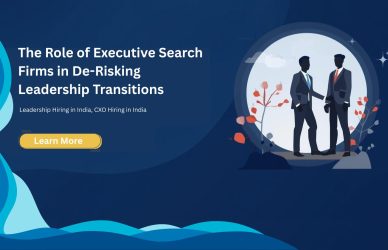Introduction: The Rise of the Strategic PEO Partner
A New Era for Workforce Management
As 2025 unfolds, businesses are facing a whirlwind of transformation. Global markets are more interconnected than ever, remote work has become the norm, and regulatory frameworks are evolving rapidly across borders. Against this dynamic backdrop, the role of Professional Employer Organizations (PEOs) has undergone a significant shift. No longer just service providers focused on routine HR administration, PEOs are now pivotal allies in shaping resilient, scalable, and compliant workforce strategies.
Businesses, particularly startups and small to mid-sized enterprises (SMEs), are increasingly recognizing that agility is key to survival and growth. Establishing legal entities in foreign countries or navigating complex employment laws internally can drain both time and resources. Enter the PEO: a strategic partner that enables companies to onboard talent swiftly, manage payroll accurately, and stay compliant—without the traditional infrastructure overhead.
PEOs: From Admin Support to Strategic Infrastructure
Historically, companies turned to PEOs for help with administrative burdens such as tax filings, employee benefits, and basic HR tasks. But in 2025, this model has matured. PEOs are now integral to business strategy, offering a seamless framework that integrates HR operations, global payroll, risk management, employee benefits, and regulatory compliance under one umbrella. With the pace of change accelerating, businesses need this centralized, tech-enabled support to remain competitive.
Furthermore, the compliance landscape is more fragmented and stringent than ever. Labor laws, data protection rules, and employee classification requirements vary not only by country but often by region. PEOs bring expert knowledge and localized insight, reducing the risks of costly legal missteps and ensuring businesses stay ahead of ever-changing regulations.
The Strategic Need for Borderless Talent
In an increasingly borderless world, the fight for top talent has gone global. Companies that can’t move quickly risk missing out on the best candidates. PEOs remove traditional barriers to international hiring by acting as the legal employer of record, allowing businesses to hire anywhere, instantly, and compliantly. This flexibility is not just a competitive edge—it’s a survival tool in 2025’s talent-first economy.
As we delve deeper into the evolving role of PEOs, it becomes clear: they are no longer a back-office luxury, but a front-line enabler of global growth and operational excellence.

Understanding PEO Services: A Modern Definition
Redefining the Role of PEOs in 2025
Professional Employer Organizations (PEOs) have evolved far beyond their traditional roles. While they still manage core HR functions such as payroll, benefits, and tax filings, their core value lies in the co-employment model. In this arrangement, the PEO becomes a legal co-employer, sharing employer responsibilities with the client company. This unique structure allows businesses to offload critical HR and compliance burdens while retaining full control over day-to-day operations and team management.
The result? A powerful, streamlined partnership that not only simplifies administration but also fortifies legal and regulatory defenses.
The Expanding Scope of Services
In 2025, PEO services have transformed into holistic, tech-enabled ecosystems that support business agility and cross-border workforce operations. Key components of modern PEO offerings now include:
AI-Powered Payroll and HR Analytics: Automation and predictive insights help organizations manage costs, detect trends, and make smarter HR decisions.
Cross-Border Workforce Management: From onboarding to offboarding, PEOs handle global employment logistics without requiring clients to establish legal entities in foreign countries.
Global Mobility Solutions: Support for relocation, expatriate management, and compliance in multiple jurisdictions.
Integrated Compliance Dashboards: Real-time legal updates, alerts, and compliance monitoring tools that minimize risk and ensure timely actions.
Employee Experience Platforms: Intuitive digital portals that enhance employee engagement, self-service access, and benefits management.
This advanced suite of services allows companies to focus on growth while staying fully supported on the HR and compliance front.
Beyond Outsourcing: A Strategic Partnership
Unlike conventional HR outsourcing, PEOs offer a shared responsibility model that redefines risk and accountability. Because they take on many of the legal employer obligations, businesses enjoy reduced liability in areas such as employee misclassification, tax penalties, and labor disputes. This shift transforms the nature of the client-PEO relationship from transactional to strategic.
PEOs today are not just vendors—they’re operational partners embedded with both technology and expertise. Their influence extends to shaping corporate culture, ensuring HR compliance, and enabling seamless global expansion.
As the workforce becomes increasingly mobile, data-driven, and borderless, this modern definition of PEO services positions them as vital engines of transformation in the global employment landscape.

PEO Services: Addressing the Top Workforce Challenges of 2025
Navigating a Complex Workforce Landscape
In 2025, businesses face a labyrinth of workforce challenges that demand agility, expertise, and precision. From shifting legal frameworks to rising employee expectations, companies must be proactive rather than reactive. This is where Professional Employer Organizations (PEOs) emerge as critical enablers—addressing problems before they escalate and empowering HR teams with tech-backed, strategic solutions.
Regulatory Volatility: Staying Ahead of Global Compliance
Labor regulations have become a moving target. Laws such as the EU’s enhanced GDPR mandates, India’s new labor codes, and AI transparency laws in the U.S. are reshaping how businesses handle employee data, automation, and employment contracts. Staying compliant in multiple jurisdictions requires real-time legal updates, region-specific expertise, and consistent documentation.
How PEOs Help:
PEOs offer localized compliance knowledge across dozens of countries. Their integrated compliance dashboards and legal teams monitor global changes and implement updates swiftly—helping businesses avoid fines, lawsuits, or operational disruptions. With a PEO, compliance isn’t a catch-up game—it’s part of your proactive strategy.
Remote Work Compliance: Managing Distributed Teams with Confidence
The hybrid and fully remote work models are now the norm. But hiring across state or international lines introduces complexity in tax filings, employment laws, working hours, and benefits eligibility.
How PEOs Help:
PEOs ensure remote work compliance by serving as the legal employer in each jurisdiction. They manage local payroll taxes, labor law requirements, statutory benefits, and employment contracts—so companies can hire talent anywhere without setting up legal entities or risking non-compliance.
Talent Shortage: Speed and Strategy in Hiring
The war for talent continues, particularly in STEM fields, healthcare, and digital transformation roles. Businesses that can’t act fast risk losing out to more agile competitors.
How PEOs Help:
With pre-vetted infrastructure and instant onboarding capabilities, PEOs enable companies to hire and deploy talent within days, not months. Their networks and built-in processes eliminate bottlenecks and remove geographical hiring restrictions.
Payroll Accuracy & Timeliness: Avoiding Costly Errors
A single payroll error can lead to reputational damage, legal penalties, and employee dissatisfaction. In 2025, accuracy isn’t optional—it’s expected.
How PEOs Help:
Modern PEOs use AI-driven payroll systems to automate calculations, detect anomalies, and ensure regulatory adherence. Their real-time analytics minimize human error and help HR departments meet tight payroll deadlines with confidence.
Employee Expectations: Evolving Work-Life Demands
Today’s workforce expects more than a paycheck. Employees value flexible benefits, wellness support, instant access to HR resources, and a workplace that prioritizes mental health and diversity.
How PEOs Help:
PEOs offer AI-matched benefit plans, access to global healthcare providers, and integrated platforms for real-time HR communication. These tools improve employee engagement, retention, and satisfaction, giving companies a competitive edge in attracting and retaining top talent.
Beyond Problem-Solving: Preventing the Next Crisis
The true strength of PEOs lies not just in addressing current issues but in preventing future challenges. By leveraging predictive analytics, they:
- Identify compliance risks before regulatory audits
- Benchmark compensation packages against industry trends
- Highlight engagement drops and turnover red flags
- Advise on HR best practices based on real-time data insights
In essence, PEOs transform HR from a reactive function into a strategic powerhouse—future-proofing businesses for whatever comes next.

Why PEOs Are Crucial for Global Expansion in 2025
The New Global Imperative
In 2025, globalization isn’t just for Fortune 500 companies—it’s a vital strategy for businesses of all sizes looking to remain competitive. Whether it’s tapping into emerging markets, accessing specialized talent, or diversifying risk, expanding internationally is now a key business goal. However, entering new markets comes with a complex array of challenges: setting up legal entities, understanding local labor laws, navigating foreign tax codes, and bridging cultural differences. These barriers can slow down growth and inflate operational costs.
This is where Professional Employer Organizations (PEOs) have stepped in to revolutionize the path to international expansion.
Eliminating the Need for Entity Setup
Traditionally, expanding into a new country required registering a legal entity—a process that could take months, involve hefty legal fees, and demand ongoing administrative upkeep. Every country has unique incorporation processes, employment contracts, and statutory obligations.
How PEOs Help:
PEOs act as the legal employer of record (EOR) in the target country. This means your company can hire full-time employees in countries like India, Germany, Brazil, or Singapore—within days and without setting up a subsidiary. The PEO handles employment contracts, payroll, benefits, and compliance, while you manage your team’s responsibilities and outcomes.
Speed: Hiring Global Talent in Days
In fast-moving industries, time is of the essence. Waiting months to open a foreign office can mean missing out on strategic opportunities or in-demand talent.
How PEOs Help:
PEOs offer ready-to-deploy infrastructure and local expertise that allow businesses to onboard employees within a week. This rapid deployment is invaluable for startups, scaling SaaS firms, and enterprises entering competitive markets.
Cost Savings: Avoiding Unnecessary Overhead
Setting up a legal entity in a foreign country is expensive. It involves registration fees, ongoing compliance costs, legal consultations, and administrative overhead.
How PEOs Help:
By leveraging a PEO’s existing infrastructure, companies can sidestep these expenses. There’s no need to hire in-house legal or HR teams for every country—PEOs bundle those services under one streamlined solution, offering predictable, manageable costs.
Risk Reduction: Ensuring Legal and Tax Compliance
Global expansion is risky. Misinterpreting employment laws, tax regulations, or data protection standards can lead to fines, legal disputes, and reputational damage.
How PEOs Help:
PEOs bring localized compliance expertise, ensuring that contracts, payroll, and benefits are fully aligned with local laws. Their built-in safeguards help companies avoid employment misclassification, improper tax filings, and non-compliance penalties, which are common pitfalls when entering new markets alone.
Flexibility: Testing Markets Without Commitment
One of the biggest concerns in global expansion is committing significant capital to an unproven market. Businesses often need to test viability before making long-term decisions.
How PEOs Help:
PEOs offer the agility to enter and exit markets with minimal friction. Companies can pilot operations, hire sales or support staff, and evaluate performance without having to commit to full entity setup. If the market proves viable, scaling up is simple—and if it doesn’t, exit strategies are fast and clean.
The Global Growth Engine of 2025
In today’s competitive, fast-paced global economy, PEOs are no longer optional—they’re foundational. As more companies adopt remote-first models and target international growth, PEOs serve as the launchpad, removing the barriers of legal complexity, cost, and compliance.
Whether it’s hiring in Asia-Pacific, Europe, Latin America, or the Middle East, PEOs make global expansion a seamless, cost-effective, and scalable reality.

Technology and Automation: The Backbone of Modern PEOs
The Tech Evolution of PEO Services
In 2025, Professional Employer Organizations (PEOs) are no longer just about HR outsourcing—they are full-fledged technology-driven platforms that streamline workforce management with precision and speed. As business needs evolve and complexity rises, the adoption of AI, machine learning, blockchain, and integrated HR technologies has become fundamental to modern PEO operations.
PEOs now serve as digital ecosystems where compliance, automation, and user experience converge—offering unmatched scalability and operational agility.
Key Technologies Powering Modern PEOs
PEOs have embraced cutting-edge solutions to manage global workforces with efficiency and insight. The most impactful technologies include:
AI & Machine Learning: These enable intelligent automation in payroll, benefits optimization, and risk detection—reducing errors and surfacing actionable insights.
Blockchain for Payroll Verification: Ensures secure, transparent, and tamper-proof payroll processing—especially crucial for cross-border transactions.
Integrated HRIS Systems: Centralizes employee data, benefits, attendance, and performance metrics for streamlined HR management.
Self-Service Employee Portals: Empowers employees to access pay stubs, benefits, tax documents, and HR support—anytime, anywhere.
Mobile-First Applications: Enables on-the-go access for both employees and employers, ensuring real-time interaction and task completion.
What Technology Enables for Businesses
The result of this digital transformation is a robust set of features that modern businesses rely on:
Automated Tax Filings: Timely, error-free filings across jurisdictions.
Predictive Compliance Alerts: Proactively flags changes in labor laws or regulatory requirements.
Smart Benefits Customization: Matches employee needs using AI-recommended packages.
24/7 Payroll Tracking: Transparent payroll operations with real-time updates.
Global Workforce Analytics Dashboards: Offers strategic insights into workforce trends, costs, and engagement.
These features help businesses not only remain compliant but also stay ahead with data-driven decision-making.
Seamless Integration and Customization
Today’s PEOs are built for flexibility. Their platforms offer API integrations that allow businesses to connect existing tools—such as ATS, ERP, or accounting software—into one seamless workflow. From hiring to offboarding, processes can be customized and synchronized without operational friction.
By blending technology with compliance expertise, PEOs have redefined workforce management, giving businesses tools that are faster, smarter, and more intuitive than ever before.

Cost-Benefit Analysis: Why PEOs Make Financial Sense
Evaluating the Investment in PEO Services
At first glance, Professional Employer Organizations (PEOs) may seem like an added expense, often charging a flat per-employee rate or a percentage of total payroll. However, when examined through the lens of total cost of ownership, PEOs consistently deliver substantial return on investment (ROI). They provide cost-efficient access to specialized HR expertise, global infrastructure, and legal compliance support—all of which would otherwise require significant internal investment.
Cost Savings That Matter
Partnering with a PEO eliminates or drastically reduces many major cost centers, including:
HR Personnel Costs: Businesses can streamline or reduce internal HR staff by offloading administrative and compliance-related tasks to the PEO.
Legal Advisory Fees: PEOs provide ongoing legal and regulatory guidance, saving thousands in consultation fees, especially during expansion or policy changes.
Non-Compliance Penalties: With built-in compliance checks, companies avoid costly fines, lawsuits, and regulatory delays.
International Entity Setup: Establishing and maintaining a legal entity in each foreign market can cost tens of thousands annually—PEOs remove this burden entirely.
These savings not only protect the bottom line but also free up capital for growth-oriented investments.
Measurable Business Gains
PEO services also deliver gains that go beyond cost reduction:
Employee Satisfaction and Retention: Better benefits, timely payroll, and responsive HR support improve morale and reduce turnover.
Faster Market Entry: Companies can hire in new countries within days, accelerating revenue generation and competitive positioning.
Business Scalability: PEOs offer flexibility to scale up or down across regions without the heavy costs of infrastructure or compliance management.
These operational efficiencies translate directly into higher performance and reduced risk.
Proof in the Data
According to recent industry research, companies that utilize PEO services:
Grow 7–9% faster than businesses that manage HR internally
Are 50% less likely to go out of business, due to stronger compliance and workforce stability
A Strategic Financial Move
In 2025, PEOs are not just an HR solution—they’re a financial strategy. By cutting overhead, accelerating growth, and ensuring compliance, PEOs offer a clear pathway to cost efficiency and sustainable expansion. For any business weighing growth against risk, the value proposition is clear: PEOs make financial sense.

Industries Making PEO Services a Must-Have in 2025
PEOs as Industry Essentials
In 2025, Professional Employer Organizations (PEOs) are no longer seen as optional HR support—they are mission-critical tools for businesses navigating rapid growth, complex regulations, and global expansion. While all industries can benefit from the streamlined services PEOs offer, certain sectors have made PEO partnerships virtually indispensable for operational success and sustainability.
1. Tech Startups: Scaling at Speed
Tech startups thrive on agility. These companies often operate with lean teams and need to hire top global talent quickly—without getting bogged down by HR infrastructure or compliance complexities.
Why PEOs Matter:
PEOs allow startups to hire internationally within days, provide locally compliant contracts, and manage everything from payroll to benefits—enabling innovation without administrative drag.
2. Healthcare: Compliance and Volume Hiring
The healthcare industry is highly regulated and constantly evolving. Hospitals, clinics, and health tech companies must manage high-volume staffing, background checks, credential verification, and local labor law compliance.
Why PEOs Matter:
PEOs offer turnkey compliance support and help manage licenses, payroll, and benefits efficiently across jurisdictions—crucial in a field where errors can lead to legal or reputational damage.
3. Manufacturing: Flexibility Across Locations
Manufacturers often deal with seasonal demand, distributed teams, and a blend of contract and permanent workers. Workforce scalability and compliance with labor laws across states or countries can be complex.
Why PEOs Matter:
PEOs handle multi-location HR management, from onboarding to termination, while ensuring local compliance and payroll precision—making seasonal scale-ups and shutdowns smooth and compliant.
4. E-commerce: Cross-Border Staffing Simplified
E-commerce businesses operate in a global environment, needing warehouse staff, customer service reps, and logistics managers across countries.
Why PEOs Matter:
PEOs help these companies hire and manage international employees without setting up local entities—crucial for operational flexibility and fulfillment efficiency.
5. Financial Services: Precision and Protection
Financial firms are under intense scrutiny for data protection, payroll accuracy, and regulatory compliance. Even a small misstep can result in massive penalties.
Why PEOs Matter:
PEOs deliver secure payroll systems, GDPR-compliant data practices, and precise reporting—offering peace of mind and protecting both data and reputation.
In these sectors, PEOs have become essential not for ease—but for survival, scale, and compliance in an increasingly demanding business world.

Risks of Ignoring PEO Services in 2025
A Costly Oversight in a Fast-Changing World
In the hyper-competitive, compliance-heavy landscape of 2025, ignoring Professional Employer Organization (PEO) services isn’t just a missed opportunity—it’s a direct risk to operational stability and growth. Businesses that continue to manage global HR, payroll, and compliance in-house without PEO support may find themselves vulnerable to a host of avoidable setbacks.
Regulatory Non-Compliance: A Legal Minefield
With global labor laws evolving rapidly—such as AI governance mandates in the U.S., India’s revamped labor codes, and enhanced EU data protection—companies that aren’t equipped with localized compliance expertise face growing exposure.
The Risk:
Failure to comply can result in heavy fines, operational shutdowns, or even criminal penalties in certain jurisdictions. PEOs continuously monitor these changes, whereas internal teams may struggle to keep up.
Delayed Global Expansion: Barriers to Growth
Entering a new market typically requires months of legal setup, registration, and compliance planning—time that startups and growth-stage companies can’t afford to lose.
The Risk:
Without a PEO, companies face slow market entry, missing key opportunities, falling behind competitors, and dealing with costly delays that hurt profitability and brand momentum.
HR Team Overload: Burnout and Bottlenecks
As HR departments are stretched thin across recruitment, compliance, benefits, and payroll, the lack of advanced tools and support becomes a bottleneck.
The Risk:
Burnout and inefficiencies increase, and critical errors become more likely, especially in high-volume hiring or global workforce management scenarios. PEOs alleviate this by centralizing and automating key functions.
Poor Employee Experience: Retention at Risk
Employees today expect accurate pay, fast support, digital tools, and personalized benefits. Falling short in these areas reflects poorly on company culture.
The Risk:
Companies without PEO support may struggle to deliver seamless HR experiences, leading to higher attrition, lower engagement, and damaged employer branding.
Lost Competitive Edge: Lack of Workforce Flexibility
In 2025, companies must scale quickly, tap into global talent, and respond to market shifts in real-time.
The Risk:
Without the flexibility and agility that PEOs offer, businesses may be unable to pivot fast enough—losing out on talent, contracts, or partnerships.
In essence, PEOs are the scaffolding that support agility and compliance—the two critical pillars for success in 2025. Ignoring them invites risk, inefficiency, and stagnation.

Future Outlook: What’s Next for PEO Services Beyond 2025?
A Vision of the Next-Gen PEO
As we look beyond 2025, Professional Employer Organizations (PEOs) are poised to undergo a transformative evolution—from HR facilitators to full-fledged digital workforce platforms. Driven by AI, automation, and increasing global interconnectivity, the next generation of PEOs will be more intelligent, predictive, and embedded in business strategy than ever before.
AI-Powered Personalization for Employee Experience
Future PEOs will deliver hyper-personalized experiences tailored to each employee. Using AI and feedback loops, benefits packages, mental health resources, and training pathways will be dynamically adjusted based on individual preferences, behavior, and performance data.
What to Expect:
- AI-matched wellness and benefits plans
- Personalized growth recommendations
- Real-time feedback and pulse surveys
This level of customization will enhance retention and engagement across globally distributed teams.
Global Compliance Intelligence on Autopilot
Compliance complexity will continue to rise, with new labor, tax, and data laws emerging regularly. Tomorrow’s PEOs will offer proactive compliance intelligence—real-time alerts, automated policy updates, and regulatory forecasting tools across all operating regions.
What to Expect:
- Auto-adjusted contracts for local laws
- Regulatory forecasting dashboards
- Instant legal updates with implementation guidance
Integrated Dashboards: Unifying Workforce Intelligence
PEOs of the future will centralize insights from HR, finance, and operations into live dashboards. Leaders will be able to view team performance, payroll spend, benefits utilization, and compliance status—all in one place.
What to Expect:
- Cross-functional analytics
- Custom KPIs by region or department
- Predictive workforce planning tools
Decentralized Contracts & Smart Legal Agreements
The legal framework of employment is also evolving. PEOs will introduce blockchain-powered smart contracts—automatically enforcing employment terms, payment schedules, and compliance obligations.
What to Expect:
- Tamper-proof, auto-updating agreements
- Global contract standardization
- Reduced legal disputes through automation
Sustainability and Workforce Ethics
As ESG metrics gain prominence, PEOs will integrate sustainability reporting tools tied to workforce policies—tracking diversity, wellness, remote carbon footprint, and ethical hiring practices.
The PEO Ecosystem of the Future
Rather than standalone services, PEOs will become plug-and-play ecosystems, integrating seamlessly with ATS, CRM, payroll, and analytics tools—offering businesses of all sizes an agile, compliant, and data-smart HR environment, globally.

Conclusion: Embracing PEO Services as a Strategic Imperative
The Strategic Role of PEOs in 2025
As we navigate the increasingly complex terrain of global business in 2025, one truth stands out: Professional Employer Organizations (PEOs) are no longer optional—they are essential. The modern workforce is distributed, employee expectations are rising, and compliance frameworks are evolving at unprecedented speed. In this environment, PEOs are uniquely positioned to help companies adapt, compete, and thrive.
Far from being just administrative partners, PEOs now serve as strategic enablers—delivering workforce solutions that blend advanced technology with deep compliance knowledge and operational agility.
Why the Right PEO Partnership Matters
Whether you’re a tech startup expanding into APAC, an SME scaling across borders, or an enterprise optimizing workforce operations, the right PEO can unlock tremendous value:
- Boost operational efficiency by automating payroll, benefits, and HR processes
- Accelerate market entry without the delays and costs of foreign entity setup
- Ensure full compliance in every jurisdiction you operate in
- Enhance employee experience through personalized benefits and streamlined support
- Gain access to real-time insights for data-driven workforce planning
By addressing both present challenges and future uncertainties, PEOs help businesses focus on growth while minimizing risk.
The Cost of Inaction
Ignoring PEO services in today’s high-stakes business climate can lead to:
- Costly compliance violations and regulatory fines
- Delays in global expansion due to legal bottlenecks
- Operational inefficiencies and HR burnout
- Employee attrition from lackluster experiences
- Loss of competitive edge due to slower agility and outdated processes
In contrast, businesses that leverage PEOs are more likely to grow faster, retain talent longer, and scale smarter.
Final Thoughts: A Strategic Imperative, Not a Trend
In 2025, the question is no longer “Should we use a PEO?”—but rather, “Can we afford not to?”
PEOs are not just service providers; they are growth accelerators, compliance guardians, and experience enablers. For businesses ready to scale with confidence, embracing PEO services is not just wise—it’s a strategic imperative.




